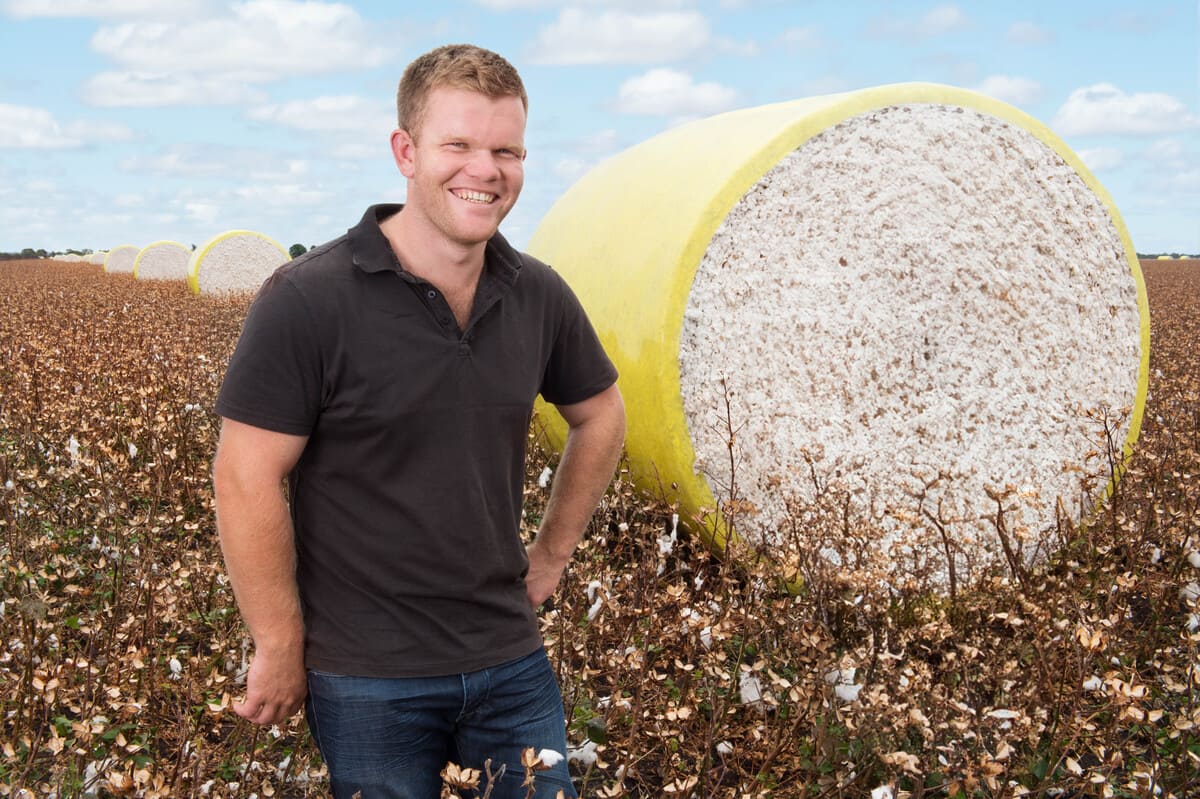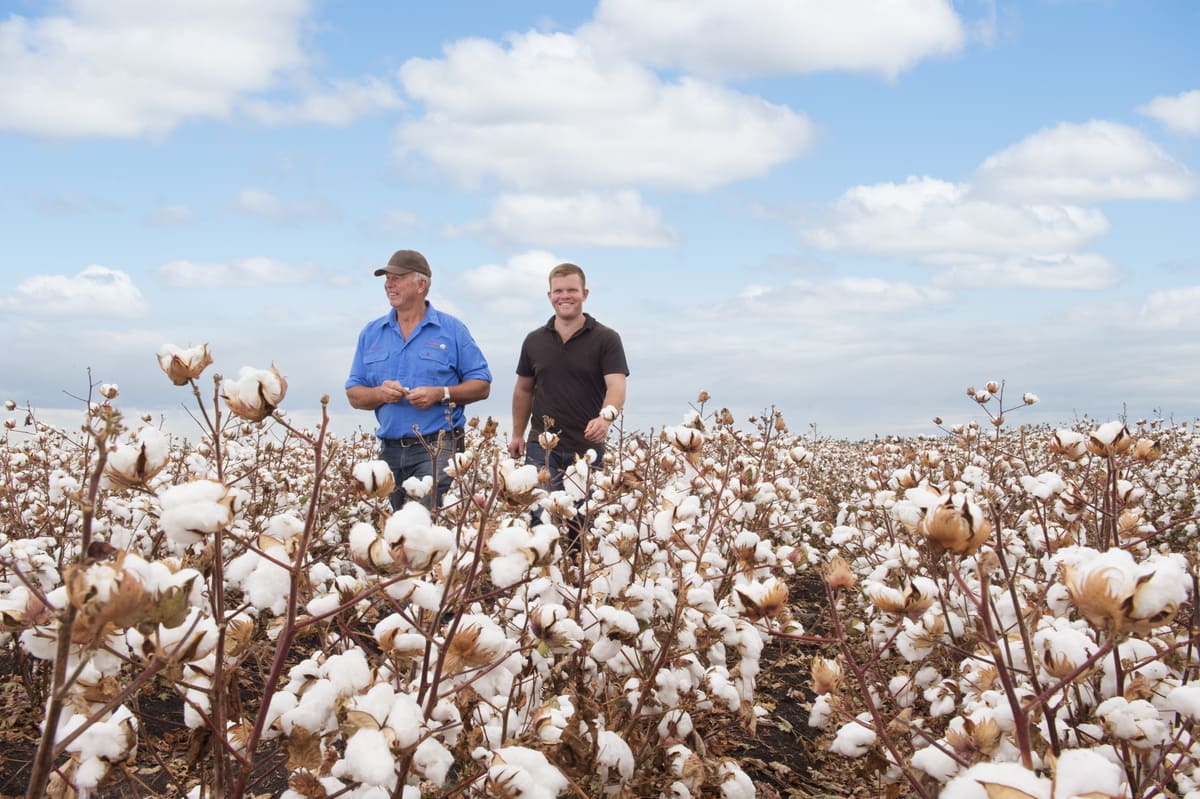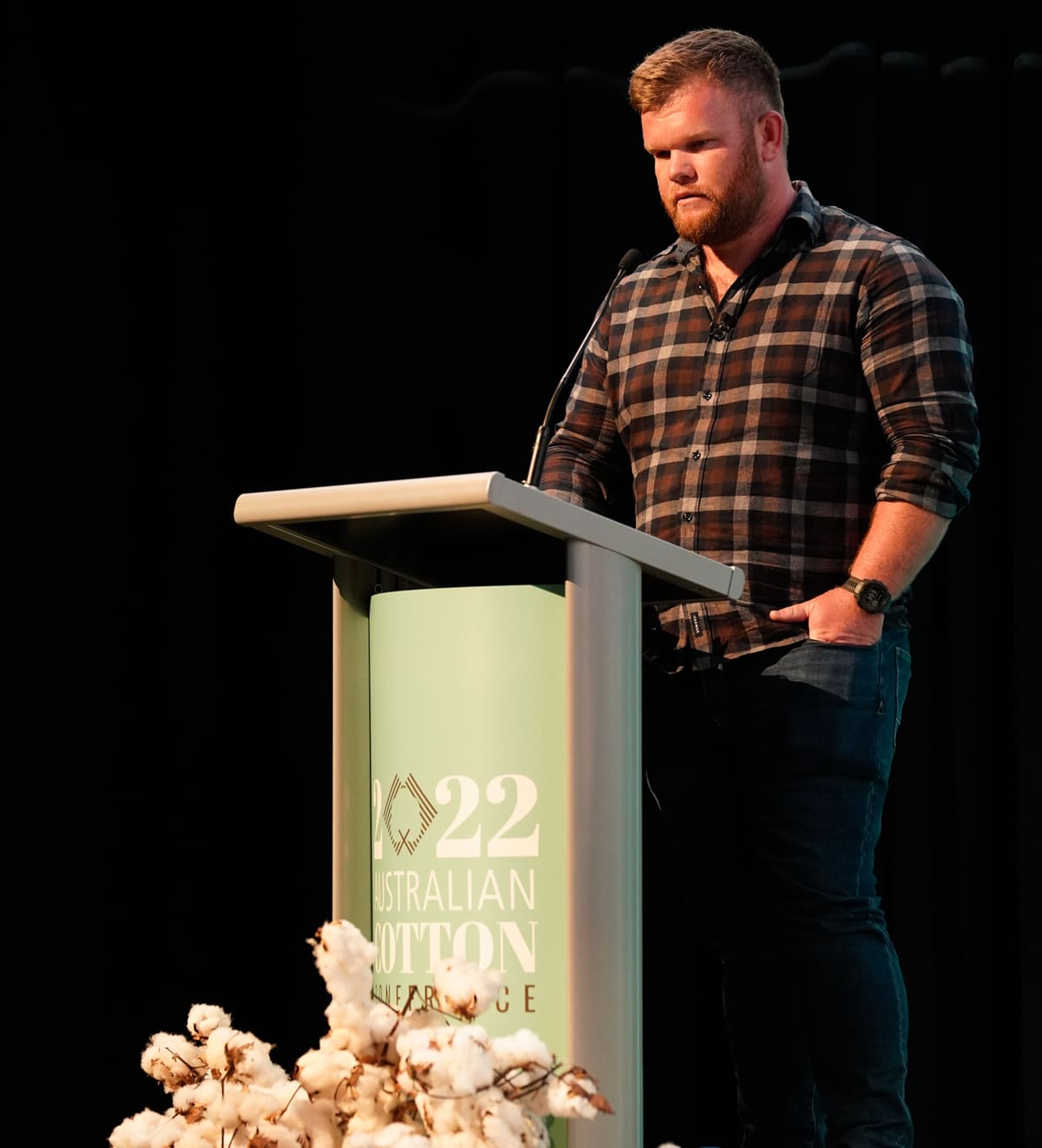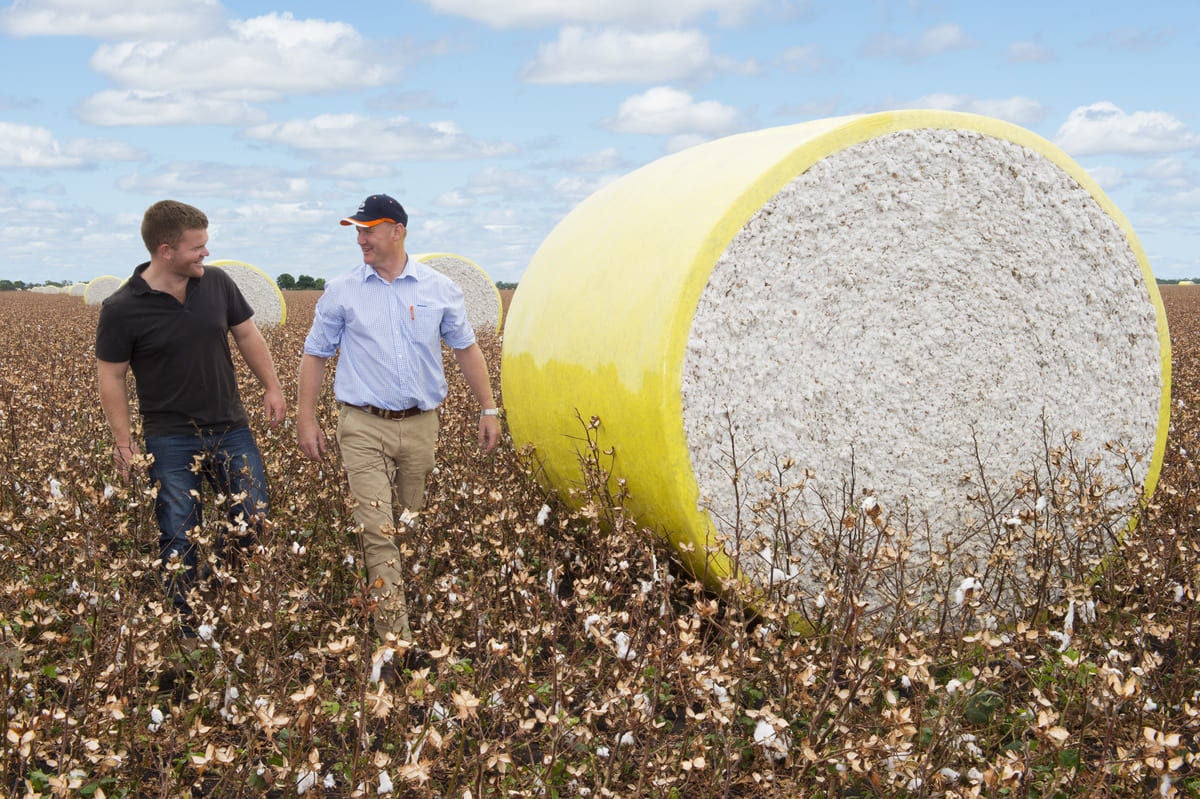Posted by on
29/04/2025
Managing the delicate ecological balance across Tyson and Rosie Armitage’s Queensland cotton crop takes precision and dedication, and is a lesson in how modern cotton operations are working in harmony with nature.
Following a strict Integrated Pest Management program (IPM) to minimise, and even negate pesticide use, the Armitages have also reduced their reliance on mineral fertilisers thanks to manure use and biosolids.
And their efforts in reducing chemicals on pests and natural fertilisers to achieve soil and plant health earned the young couple the 2024 Darling Downs Cotton Grower of the Year award.
Humbled and proud of the accolade, Tyson believes it’s recognition that reflects years of innovation spearheaded by his parents, Stuart and Maxine Armitage.
“I’m grateful to be continuing what my parents began, and it’s thanks to their vision that we’re where we are today,” Tyson reflects.
For over 25 years the Armitage family has been using manure to naturally nurture soils, its Cecil Plains property, “Wamara”, perfectly located to leverage waste from the Darling Downs’ thriving livestock sector.

Stuart and Tyson Armitage.
At just 300km from Brisbane, its unique geographic advantage also affords access to the city’s biosolid waste, a byproduct of sewage treatment.
“There’s exciting collaboration and synergies between the sectors here on the Darling Downs, we’re in the heart of cotton and feedlot country, and the region’s ability to solve solutions locally in a circular economy is something we’re all very proud of.”
Whilst not a new innovation, Tyson is encouraged by the potential of manure as fertiliser that is only now being fully realised.
“In the past we’ve spread manure because it’s been accessible and convenient, yet now we’re taking a much more scientific approach we’re realising its true value as a natural fertiliser alternative, and we’re in a very enviable position.”
Whilst the discovery of microplastic traces in biosolids has raised concerns, with more testing required, Tyson remains confident that a natural approach is still better for crop and soil health.
“Having a more rounded fertiliser program, rather than a pure focus on nitrogen, has resulted in less disease, less water-logging and a far more resilient crop than previously.”
“Our soil health system is largely natural, with traditional fertilisers only used to fill the gaps,” Tyson explains. “However, during the past couple of wet years we haven’t always been able to apply manure across the fields, and we adapt to conditions as best we can.”
Insect spraying is also only used as a last resort, the family having only sprayed once in the past three years.
“Taking an integrated pest management approach takes a lot more time, I spend a lot more time in the crop, and there’s more risk, but it’s definitely worth it to avoid pesticide use and keep those beneficial bugs working in harmony with the crop.”
The family’s commitment to the cotton industry’s research and development was another exemplary contribution recognised through their recent award.
For 20 years the Armitages have hosted variety trials on their property, and are currently trialling five new varieties in collaboration with Cotton Seed Distributors (CSD).
“It’s always interesting, and useful, to see the new cotton varieties coming through,” Tyson reflects. “It’s a contribution to industry, but as growers it’s certainly valuable to keep up-to-date on where things are going and have that opportunity to identify issues – or potential – early.”
“From our perspective, dedicating a small portion of our field to research, and our time picking and planting it is a small price to pay considering the advances these trials make to our industry efficiency.”
The Armitage family grow irrigated cotton over summer and barley and chickpeas through winter.
Sorghum and mung beans are additional opportunity crops, planted in rotation with the cotton.

Tyson presenting at the Australian Cotton Conference in 2022.
“When I first moved home it was our agronomist, Matt Holding, who initiated regular end of season catch ups with local growers, an opportunity for his clients to openly discuss what we did well, what didn’t work and what we would change.”
“These meetings were a simple yet invaluable initiative, and I gained so much knowledge from these conversations with my fellow growers.”
“The generous sharing of knowledge is what continues to drive our industry forward, and whether it’s on a local level with our agronomist, or on a national level at the Australian Cotton Conference, the collective objective to work together is so energising.”
And the Armitages demonstrated this generosity recently, opening their farm gates for an on-farm field day, hosting more than 100 attendees, growers and industry representatives.
“We really enjoy sharing our story – we want to showcase that if you can leverage nature in the crop cycle, it means less irrigation, and less spraying, which is good for our farm, and good for our bottom line – it’s a really positive story to share.”
Tyson is proud of the cotton industry’s approach to continual improvement, with the industry making valuable inroads in the reduction of water and chemical use over recent decades.
“We want to get the most cotton out of every drop of water, and it’s this dedication that makes Australian growers some of the most efficient in the world at producing high quality cotton.”
Rabobank a constant thread
As long-term Rabobank clients, Tyson values the relationship he has with his manager, Andrew Walker out of the Toowoomba branch.
“The relationship we have with Andrew is invaluable, which was exemplified through the purchase of additional land in recent years – thanks to Andrew being so close to our operation the process was seamless.”
“Andrew knows our business inside and out, and there were no surprises for either of us, which made our growth a much easier experience.”

Tyson with Rabobank manager, Andrew Walker.
And with the Armitage family as generous in their support of community as they are industry, Rabobank’s contribution to rural and regional Australia is a well aligned value.
Stuart and Maxine were amongst the founding members of the Southern Queensland Rabo Client Council, with Stuart also assuming the role of Council Chair over the past four years.
The Rabo Client Council is a group of client volunteers who work with Rabobank to develop and deliver grassroots initiatives, and prioritise where funding can make the greatest impact within the community.
“As a result of Mum and Dad’s work with the Rabo Client Council I gained a great appreciation of all the work Rabobank does behind the scenes contributing to community,” Tyson says.
“Rosie and I have completed the Financial Skills Workshop, which gave us really practical tools for farm management, we’ve done a first response course, and gained business skills through Young Farmers Network, and have also attended a carbon training workshop – and all these have been Rabo Client Council initiatives, delivered locally to help contribute to a strong farming and community future.”
“Having glimpsed behind the scenes of the Rabo Client Council, I know first-hand that if there’s an opportunity to support agriculture or community, Rabobank will gladly lend a hand.”
